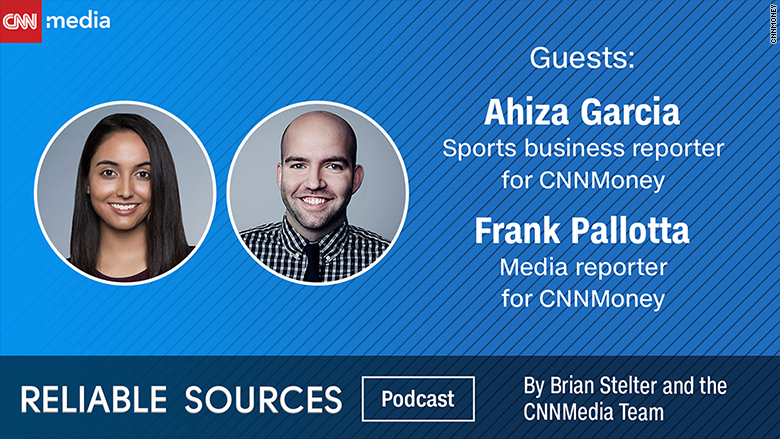
Though it long held the title of most-watched TV broadcast in the U.S., this year's Super Bowl comes at a tumultuous time for the NFL.
The league's TV ratings have taken a 10 percent dive from last year. Some of its most prominent players, including Aaron Rodgers and J.J. Watt, suffered injuries on the field. Head traumas and concussions continued to rise. And in perhaps the biggest "unofficial game" of the season, the NFL squared off with President Trump after he criticized players who knelt during the National Anthem to protest social and racial injustice.
Times aren't all rough -- the league recently closed a five year deal with Fox Sports for "Thursday Night Football" -- but the lead up to Sunday's game between the Eagles and the Patriots is raising questions about the NFL's status as an organization.
"I think the narrative that we need to look at is that it's not necessarily falling apart or on fire, but rather that it's no longer immune to the trends that are taking place on all of media and all of TV," CNNMoney media reporter Frank Pallotta said. "For a long time, the NFL felt like it was above it all. And for a long time it was. That is no longer the case."
Pallotta and CNNMoney sports business reporter Ahiza Garcia sat down with Brian Stelter to discuss the various factors at play in the NFL's rocky season for this week's Reliable Sources podcast.
The Super Bowl LII comes amid a time of dropping viewership metrics for the league. Super Bowl XLIX in 2015 had the largest audience in TV history, with 114.4 million viewers. About 111.3 million people watched 2017's game; this year, more than 110 million are expected to tune in.
Do the declining numbers signal that the NFL has already hit its peak? Pallotta doesn't entirely think so. "You also need to say, 'How many things can bring in 100 million people and connect that many people in this divisive country right now?' It still is the Super Bowl."
"That being said," he added, "I don't want to sound too bullish on the NFL. It does have a lot of issues, including the game itself."
Garcia said player protests were "an example of the turmoil" the NFL has faced over the past few months.
"I think the player protest thing is obviously hugely polarizing," she said. "It's a huge issue that the NFL has really tried to solve in a way that kind of satisfies the players but also keeps fans happy."
And, in addition to injuries and spats with President Trump, one of the most prominent issues of the season dealt with dramatic moments "off the field."
"I think one of the bigger things that I think was most shocking is the way that owners were kind of at each other [this season] and it played out very publicly," Garcia said. "The NFL for so long has done such a good job of kind of insulating any conflicts that it had, and really kind of keeping up a veil between what happens behind the scenes and what the public sees. But this was just so public."
So what's the ultimate status of the league? "It's in a transitional phase right now," Garcia said. "But honestly, I think that despite the tendency that everyone has to try to say, 'This is the thing that's going to end the NFL,' the NFL is doing really well... I mean, it's still the biggest juggernaut in sports and it's the thing to beat still."
Pallotta agreed that the NFL is "perfectly fine" as it wraps up its season.
"I think ultimately we as journalists, and people who are watching media, and TV observers have a predisposition to really kind of look at things as if things are coming to an end," he said. "...But ultimately [the NFL] is not dying. It's still the biggest thing on television by a large margin."


